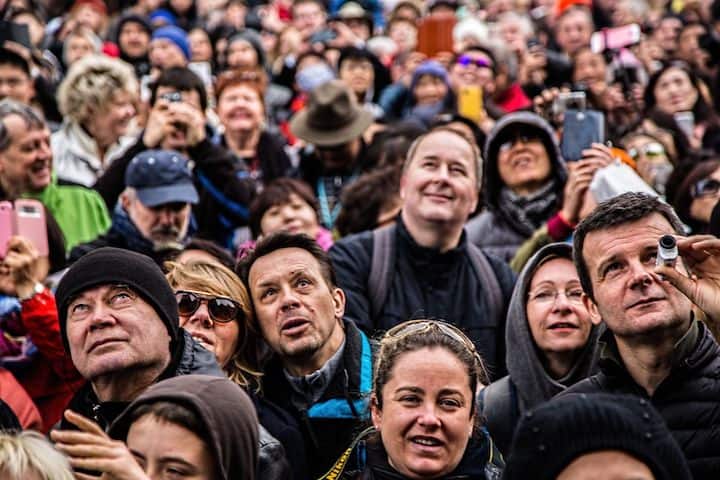What is Culture?
by CAPP-USA

What is culture? It is the most important structure of society.
The Definition of Culture
Culture is the shared values, beliefs, customs, behaviors, and practices of a group of people.
It encompasses a wide range of aspects, including language, religion, traditions, art, food, music, social norms, what is right and wrong, and even ways of perceiving the world.
Culture is passed down from generation to generation and shapes how individuals in a society think, communicate, and interact with each other.
The Preeminence of Culture
Culture is the most important structure of society because “Man is understood in a more complete way when he is situated within the sphere of culture through his language, history, and the position he takes towards the fundamental events of life, such as birth, love, work and death.” (Pope St. John Paul II, 24)
Pope St. John Paul II established the need to maintain vibrant and critical interaction among economics, culture, and politics, emphasizing that of these – culture is the most important: “All human activity takes place within a culture and interacts with culture.” (Pope St. John Paul II, 51)
“[P]olitics and economy cannot be reduced to mere technical know-how bereft of ideals and unconcerned with the transcendent dimension of man…” (Pope Francis, 10)
Our Culture is in Crisis!
Contemporary culture is in crisis because of a drift from faith, the erosion of traditional moral values, and a growing disregard for human dignity.
Our problems have their roots in culture and are manifested in economic, political, and societal pathologies such as consumerism, our human and physical environment (ecology), alienation, and radical secularism/relativism.
In fact, these represent a spiritual and moral crisis that affects the core of human existence. They originate “in the denial of the primacy of the human person! We have created new idols.” (Pope Francis, 55)
What is Culture without God?
At “the heart of every culture lies the attitude man takes to the greatest mystery: the mystery of God.” (Pope St. John Paul II, 24)
“The apex of development is the exercise of the right and duty to seek God, to know him and to live in accordance with that knowledge.” (Pope St. John Paul II, 29)
The purpose of culture is to orient peoples toward God because without God, “public life is sapped of its motivation and politics takes on a domineering and aggressive character. Human rights risk being ignored”. (Pope Benedict XVI, 56)
Religion is at the heart of culture.
Without religion society creates an illusion that God does not exist or can be restricted to the realm of purely private affairs and the greatest danger is “human beings are themselves considered consumer goods to be used and then discarded.” (Pope Francis, 53)
“At the heart of every culture lies the attitude man takes to the greatest mystery: the mystery of God.” (Pope St. John Paul II, 24)
The Solution
“Freedom…demands the courage to engage in civic life and to bring one’s deepest beliefs and values to reasoned public debate.” (Pope Benedict XVI)
If we fail to restore God’s preeminence, “cultures can no longer define themselves within a nature that transcends them, and man ends up being reduced to a cultural statistic. When this happens, humanity runs new risks of enslavement and manipulation.” (Pope Benedict XVI, 26)
“[A]uthentic human development concerns the whole of the person in every single dimension” (Pope Benedict XVI, 11) and Catholic social teaching, with its unwavering principles of human dignity, solidarity, and subsidiarity, holds the answer! (Pope St. John Paul II, 55 & 67)





